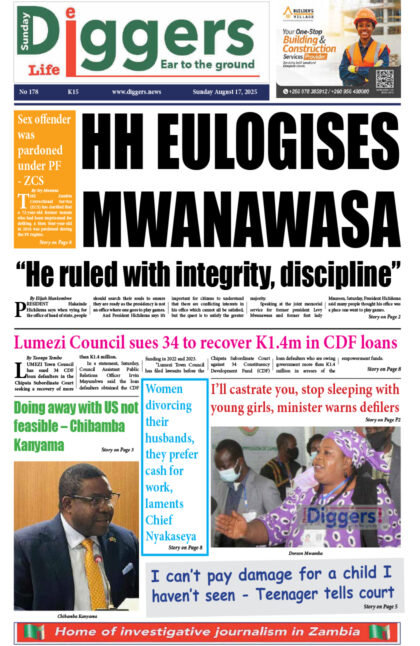TRANSPARENCY International Zambia chapter president Sampa Kalungu says all government tenders must be published in the media in order to ensure transparency.
And Kalungu says had it not been for the media, the highly-priced tender for water meters would have gone unnoticed.
In an interview, Kalungu said by publicising the tenders, government would be inviting the public to also join the corruption fight as they would be able to scrutinise the companies being awarded.
“The lesson that we need to learn is that government should be transparent. They should be transparent even in procurement. They should be transparent to the level where when they bring out a tender, the one who wins the tender is published. One, what they will be doing in publishing who has won a tender is [that] people can scrutinise whether that company is qualified to deliver that tender. But what we have seen in the past, there would be road construction but my company supplies stationery and yet I win a tender when actually my expertise is in stationery,” Kalungu said.
“They need to be transparent to publish who has won a tender, how much the tender is going to cost and for what things they are going to do. And then the public will get involved in the fight against corruption because they will be comparing what prices are there, the way we were comparing the cost of the meter. Also, there might be somebody who might have seen the services of maybe a particular person or a company who has won a tender and will have a saying about that. In that way, we then invite the public to start fighting corruption with us.”
And Kalungu said had it not been for the media, the highly-priced tender for water meters would have gone unnoticed.
“You remember it was 250 million and it was published. 250 million contract, until you people in the media, and we are happy and we commend the media for being alert to a lot of things because certain things have come to be talked about, to be known, to be campaigned against because you highlighted them. If you had not highlighted a number of things they could have passed and government could have lost money. We do not know whether it was really a genuine mistake or not, but the fact of things we know is that it was published first at 250 million worth of a contract until it was made and it revised at 250,000, where a pump was going to cost 250,” said Kalungu.
“The good thing is that nowadays I can get things from Amazon, I can get things from Alibaba I can purchase all those things online. So the prices are there, I don’t need to travel to China for me to get a price Alibaba will tell me. I don’t need to go to America, amazon will tell me. And people went to these sites and they realized that the water meter would actually cost in the range of 30 to $70. Even if you added transport cost on that we don’t see it going beyond 80. And when we saw that happening and is being justified that this is the cost, again we are saying where are we again- we back in the PF era.”























